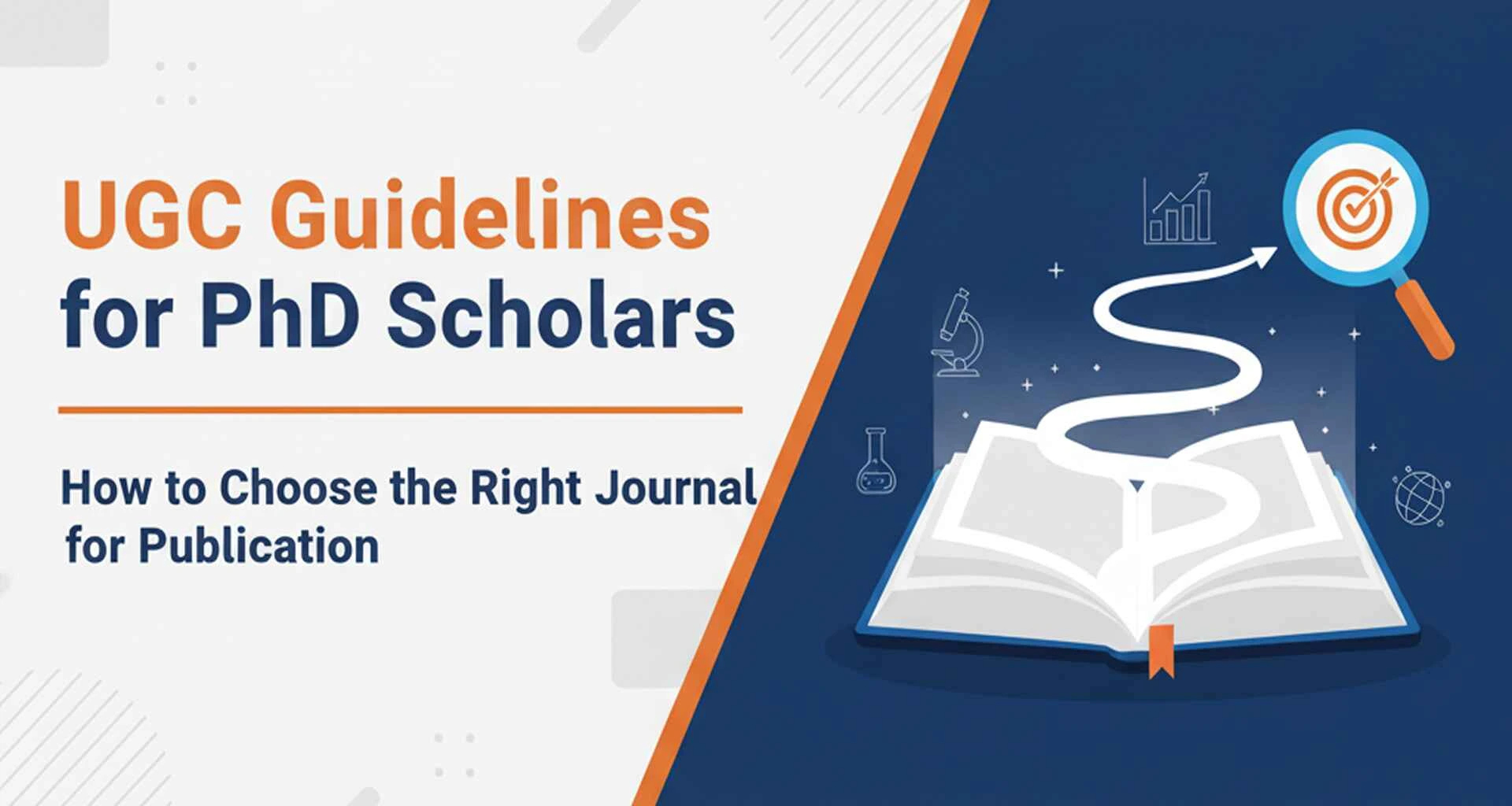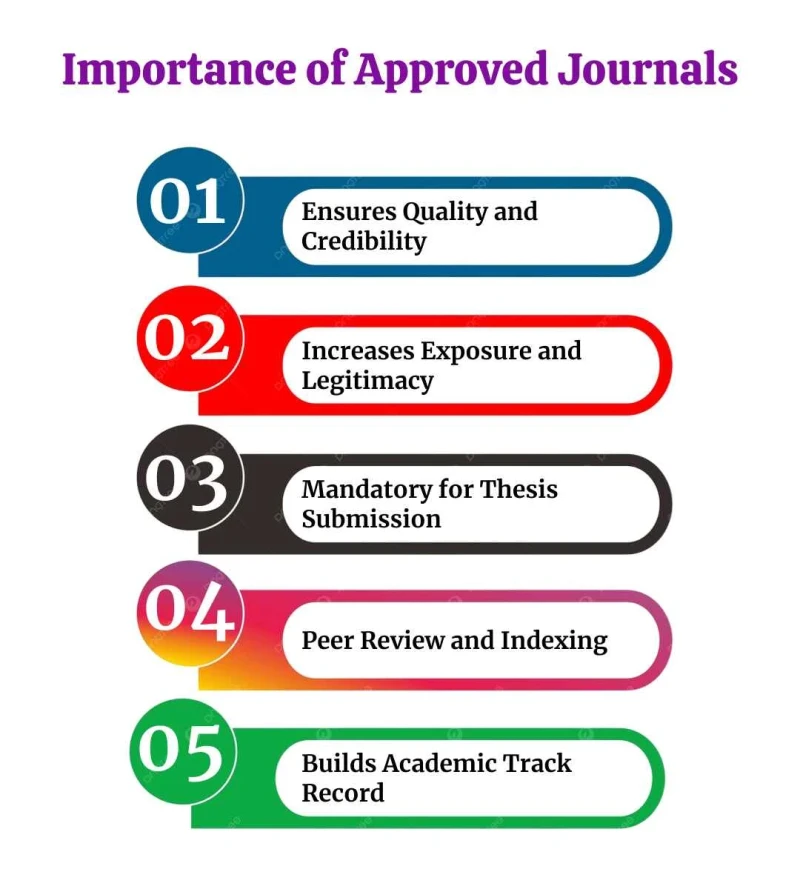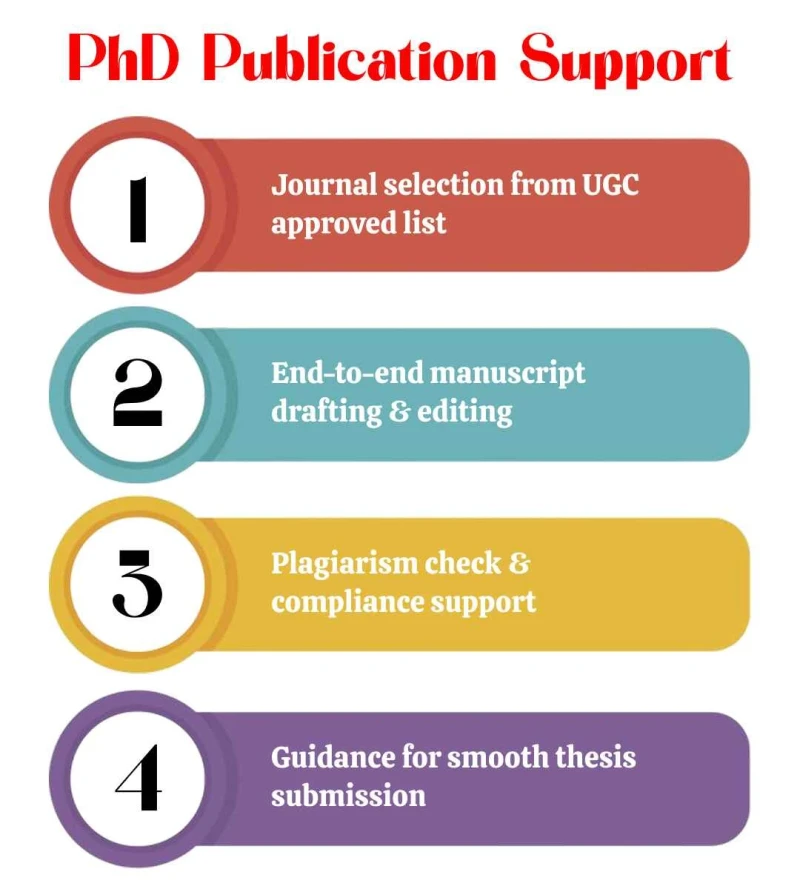Methods of Primary Data Collection in Research Methodology
Master the top methods of primary data collection in research methodology. Learn to use surveys, interviews, and experiments to gather original, high-quality data.

Santhi.GN
Embarking on a journey to a PhD is thrilling and daunting at the same time. For every PhD researcher, publication of research work is an inevitable benchmarking parameter to make it visible, credible, and famous. The UGC guidelines for PhD clearly emphasise systematic publication criteria that maintain academic integrity and global research standards. Adhering to these guidelines not only increases your work's credibility but also helps you choose the right forum to publish it.
At Ondezx, we understand the challenges that PhD candidates go through in the academic publishing world. With identification of authentic journals to manuscript formatting according to University Grants Commission guidelines, our expert support ensures scholars satisfy all the requirements with assurance. By matching UGC norms, you ensure your research integrity and enhance acceptance chances by quality journals.
The University Grants Commission is the centre of India's higher education. It defines academic standards for Ph.D. research so that there is uniformity, transparency, and quality in universities. UGC guidelines for a PhD outline the admission process, coursework, publications, and thesis submission, which all applicants must follow with diligence.
These official regulations are intended to maintain the scholarly integrity of Indian research on the global stage. In following these regulations, researchers demonstrate creativity, ethical research practices, and scholarly professionalism. You can find out more about the University Grants Commission through their official University Grants Commission sources so that you can observe the manner in which each stage of your doctoral programme is affected by these regulations.
Entry into a PhD program in India occurs after strictly set standards. According to the UGC guidelines for PhD, the candidates typically need to have a master's degree with a minimum percentage as set by the university. Some candidates may also qualify on the basis of national-level entrance examinations such as UGC-NET, JRF, or any other tests approved by the government, which provide easier entry.
Post-admission coursework is an important part of the doctoral process. During this period, students are expected to have advanced research instruments, knowledge in the relevant field of study, and standards of ethics. After coursework comes a rigorous screening process that helps to cull out and direct real researchers.
The UGC also requires Research Advisory Committees (RACs) for every scholar to monitor their performance and provide feedback in a timely manner. Such systemic admission and course standards enhance the integrity of doctoral programmes and maintain high-quality output across institutions.
For prospective PhD applicants, it must be understood that such eligibility and entry requirements are not formalities. Instead, they act as a guideline which ensures the quality of research so that it is in accordance with national and international educational standards.

Publishing your work in the appropriate journal is a key determinant of your success as an academic. The UGC approved list of journals is an official measure of quality journals, which helps prevent scholars from committing themselves to predatory or poor-quality journals.
Publishing in UGC-approved journals helps scholars avoid predatory or low-quality journals.
Guarantees that research meets recognised academic standards.
Selecting journals from the approved list enhances public visibility and scholarly recognition.
Aligns publications with UGC PhD guidelines.
Many institutions require publications in approved journals before accepting a thesis for evaluation.
Ensures all submitted work reflects universally accepted scholarly standards.
Helps scholars identify platforms that maintain rigorous academic practices.
Publication is a sign of excellence in doctoral research, and UGC guidelines for PhD have made it a strict requirement. A researcher must publish at least one or two research articles in recognised journals of the UGC before the final submission of the thesis. This process ensures that your work has undergone external peer review and is of academically good quality.
Upon meeting the publication criteria, the thesis is evaluated by internal and external examiners. This guarantees that the work of the scholar meets national and international academic standards.
Publication in reputable journals not only strengthens the thesis but also makes the scholar a recognised figure in their area of study. It raises the chances of being cited, known among the academic community, and having future collaboration or funding opportunities.
We at Ondezx provide personalised support in journal selection, paper preparation, and plagiarism. Our recommendations ensure that your research is well-suited according to UGC guidelines and reaches the desired academic audience.
Supervisors and Research Advisory Committees (RACs) play an important role in monitoring PhD candidates. The supervisors' duty, according to the UGC guidelines for PhD, is to mentor scholars, authenticate originality in research work, and recommend appropriate journals for publication.
The RACs check progress from time to time, provide constructive feedback, and ascertain ethical and academic standards. They promote higher authenticity of research and an easier thesis submission process.
The UGC updates its policies on a regular basis to sync with international scholarly trends. Some recent developments are provisions under the National Education Policy (NEP) 2020 for direct admission to PhD by exceptional individuals and provisions for part-time PhDs, among other flexible options. These developments demonstrate UGC's efforts towards enriching Indian research with inclusivity and global competitiveness.
Keeping up to date with such changes keeps researchers in sync with evolving UGC guidelines for PhD.

Publication can be intimidating without proper advice. Ondezx and similar services provide end-to-end PhD publication services, helping researchers select the right journals from the UGC approved journal list, draft manuscripts, and perform plagiarism checks.
By collaborating with expert PhD journal support, researchers save time, miss fewer common pitfalls, and have their work accepted by reputable journals. This service is particularly beneficial for novice researchers who might find it challenging to navigate the publishing process. Explore insights on the blog and how professional services can make your experience easy.
The PhD candidate's journey is not complete without quality publications. Adhering to UGC PhD guidelines and choosing the right journals from the UGC list of approved journals, candidates can achieve scholarly stature and career growth.
At Ondezx, we make sure to guide the researchers step by step, from admission requirements to journal publication and thesis submission. If you are preparing for your doctoral journey, contact us today for expert advice that makes your research stand out with credibility and impact.
Master the top methods of primary data collection in research methodology. Learn to use surveys, interviews, and experiments to gather original, high-quality data.
Don’t write your methodology without reading this. Learn why purposive sampling is essential for case studies and how to define your inclusion criteria. Url:purposive-sampling
Master the chapterization of thesis to ensure logical flow. Learn the standard academic framework for organizing research into a professional, approved document.
A practical guide to sentiment analysis research papers covering methodologies, datasets, evaluation metrics, research gaps, and publication strategies.
Master data analysis for research papers. Learn quantitative and qualitative methods, cleaning, and reporting standards to ensure your study meets journal rigour.
Want to impress your peers? Discover the best ways to condense your research, avoid common mistakes, and handle tough questions at any academic conference.